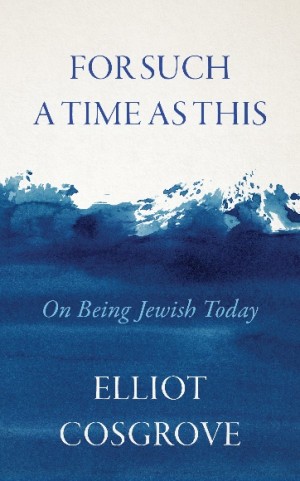What does it mean to live as an adult Jewish woman in the contemporary United States? This is the foundational question of Sarah Hurwitz’s memoir, Here All Along, in which she documents her quest for a more evolved understanding of Judaism. As she describes her journey from well-intentioned but underwhelming Hebrew school years to thoughtful independent reading, invigorating Jewish meditation practice, and challenging adult education classes, Hurwitz emerges as a voice for her generation.
One piece of what makes Hurwitz’s story so relatable is the tremendous gulf between her secular and professional achievement and her Jewish ones. A graduate of Harvard Law School and speechwriter for First Lady Michelle Obama, Hurwitz has worked hard for her successes, with her work recognized and celebrated in academic and political circles. However, even as she marked these achievements, she began to wonder about the ways in which her religious understanding lagged behind. Hurwitz’s wondering is not a sentimental open-hearted embrace of Jewish observance, but instead a deeply serious desire to understand what Judaism is, and how she might develop her own Jewishly meaningful life. In her studies, Hurwitz does experience a few ‘aha!’ ecstatic, spiritual moments, but more often she uncovers new ways of thinking about theology, sacred texts, and relationships. As she learns more about Judaism, she is better able to integrate its teachings into how she approaches and understands her life. This is not a memoir about Hurwitz finding God, but rather about finding the language and Jewish context with which to talk about God, Torah, Jewish holidays, and everything else in between.
As I read this book, I could not help but think about the dozens of people I know whose backgrounds are similar to Hurwitz’s. They are intelligent, well-educated, professionally successful Jewish adults in their twenties, thirties, and forties whose understanding and experience of Judaism hasn’t matured since they were teenagers. Without having bumped into traditional milestones of marriage and parenting, their incentive to engage with many communal Jewish institutions has been left mostly up to them. Hurwitz’s book opens the door to the conversation that these American Jews are having in their own minds, and may act as a touchstone for those seeking a companion for their own spiritual investigations. This is the book I want to give to every Jewish adult graduating from post-secondary, professional and graduate school, or who wonders about the intersection between Judaism and American life in the twenty-first century. It’s also the book that I’d give to every Jewish adult who wants to move beyond wondering “what does this Judaism stuff mean to you?” and think about “what does this Judaism stuff mean to me?”
Hurwitz draws upon her experience as a speechwriter, and the book has a strong conversational tone. The book’s extensive bibliography includes many works that are readily available and accessible to the lay-person. I especially appreciated that Hurwitz experienced and describes a wide variety of Jewish educational modalities. With Here All Along, Hurwitz provides readers with a menu full of ways in which Judaism can be experienced on a deeper level, and the tools with which to begin to do so.
Debby Miller is a long-time board member of Jewish Book Council, serving on its Fiction committee, and later founding the National Jewish Book Award for Book Clubs. She is currently a Vice President of the organization. Debby is based in Greensboro, NC and has been involved in the Jewish community through National Council of Jewish Women (NCJW), AIPAC, B’nai Shalom and the Federation. She was president of the local Women’s Division and campaign chair, and also got involved in the National Women’s Division. One of her primary philanthropic endeavors is her work with JDC, where she has been a member of the board since 1994.



